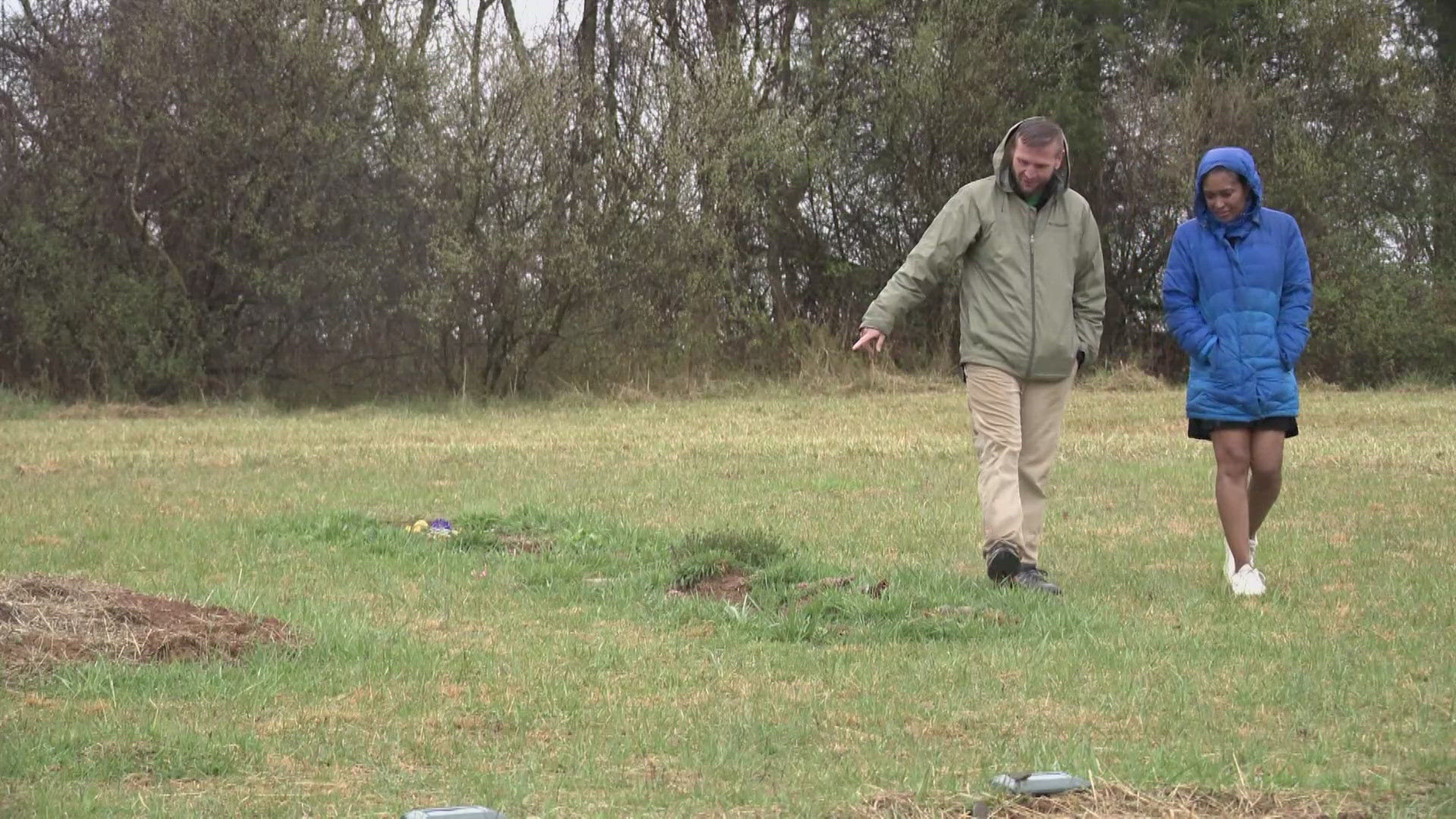WASHINGTON — On a gray and cloudy day at Serenity Ridge Natural Cemetery, raindrops fell on the final resting place of those no longer with us. Hand-painted stones left at one grave served as a reminder of the good times. It read, "Thanksgiving 2023, thanks for love."
While death is never easy, some people are choosing a different way to handle the final arrangements. At Serenity Ridge, it's all about green burials.
"We’re doing burials the same way they were done 200–250 years ago, where a person is just laid in the ground unadulterated and goes back to the earth," said Steve Kuehne, cemetery manager at Serenity Ridge. "And they can choose whether they want a biodegradable casket or a shrouding board," he said.
Cremations are known to release toxins into the air, such as NOX, volatile organic compounds, and mercury. The Environmental Protection Agency found that in 2020 alone, U.S. cremations released 2.3 tons of mercury into the air. The EPA said mercury from dental fillings from the deceased is vaporized during cremation.
The National Institutes of Health found that traditional burials can lead to heavy metal, bacterial, viral, and fungal contaminants in the soil.
It's one of the reasons why Serenity Ridge uses caskets that don't contain metal or paint. Instead, it's all wood and finished with natural oils or beeswax.
"Everything, including the way this casket is put together, is biodegradable, so there’s no screws, no nails, no adhesives," Kuehne said.
Maryland will soon have new options when it comes to alternative burials. Governor Wes Moore signed the Green Death Care Options Act into law on May 9. The document helps establish regulation of aquamation and natural organic reduction burials in the state.
Aquamation involves placing the body in an alkaline water solution that breaks the body down into a powder-like substance, similar to ashes. It's also known as water cremation. Natural organic reduction transforms human remains into compost through accelerated decomposition.
Maryland State Senator Jeff Waldstreicher introduced the legislation.
"Ultimately, everyone needs to make this difficult decision for themselves, and the Maryland government should give that option to its constituents," Waldstreicher said. "You don't have to want this for yourself to provide it for others," he said.
The law goes into effect in October 2024.

